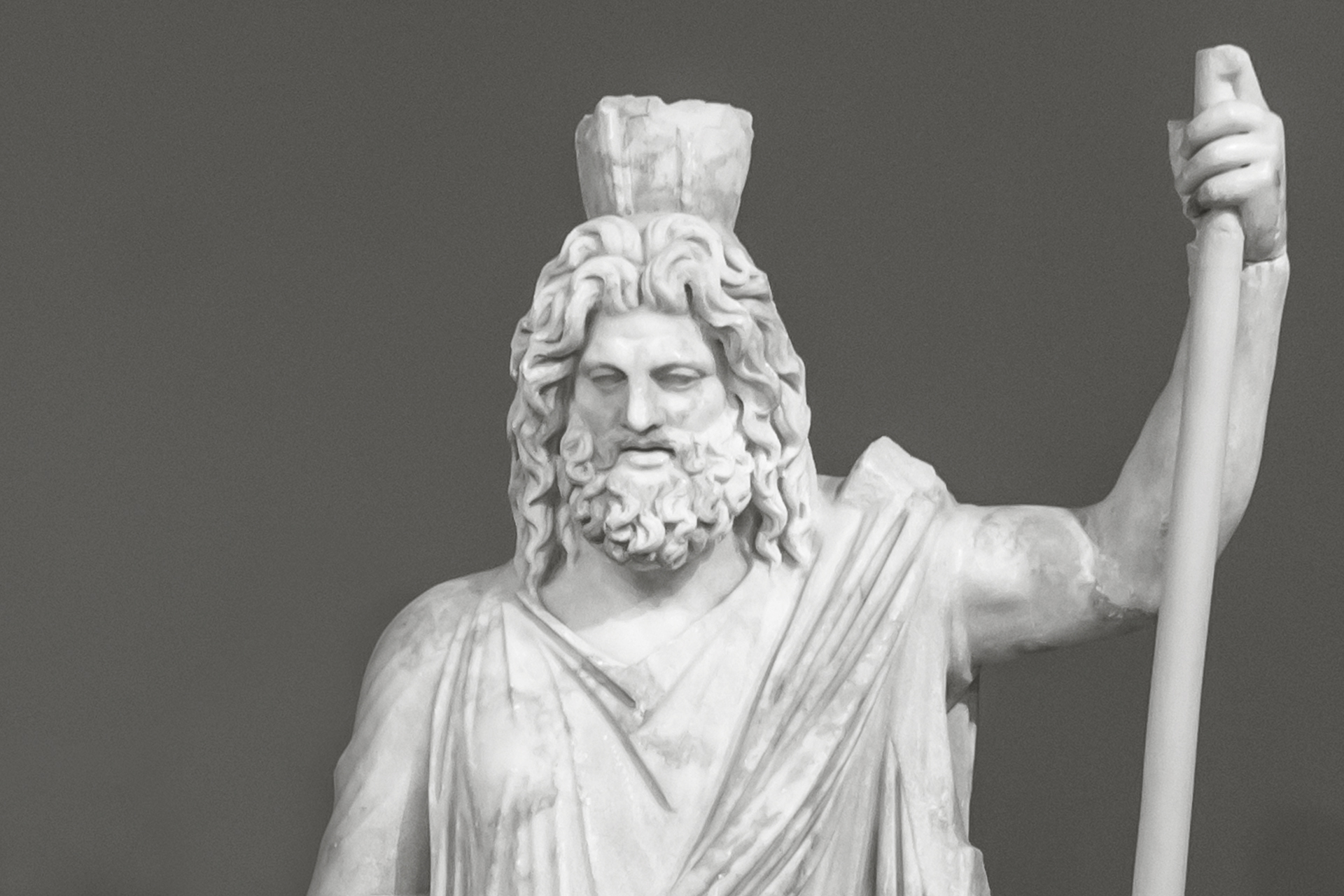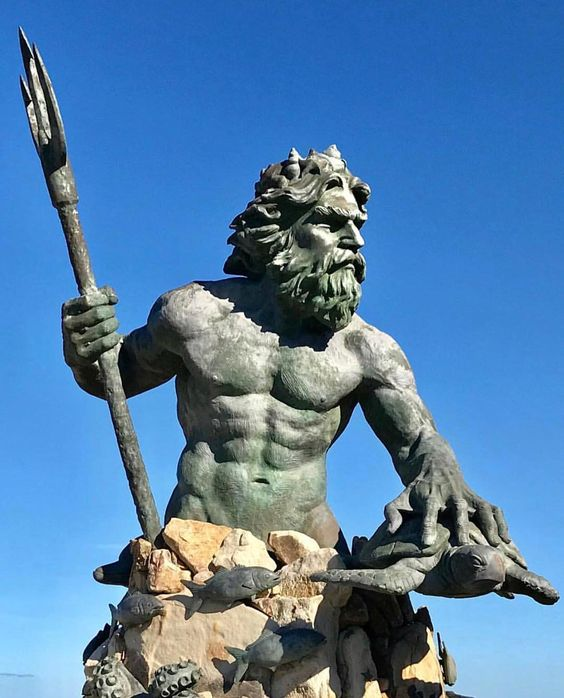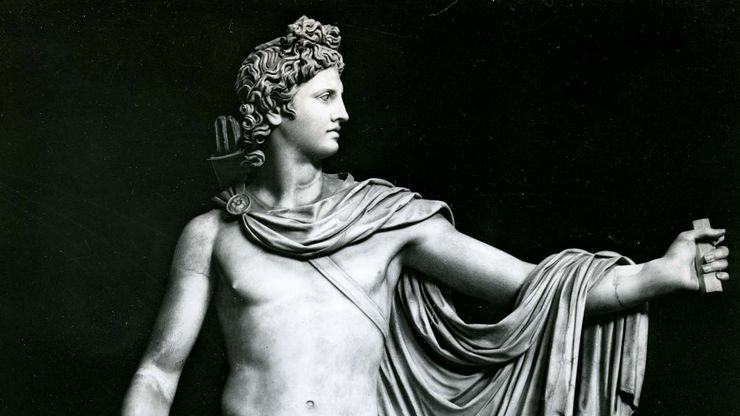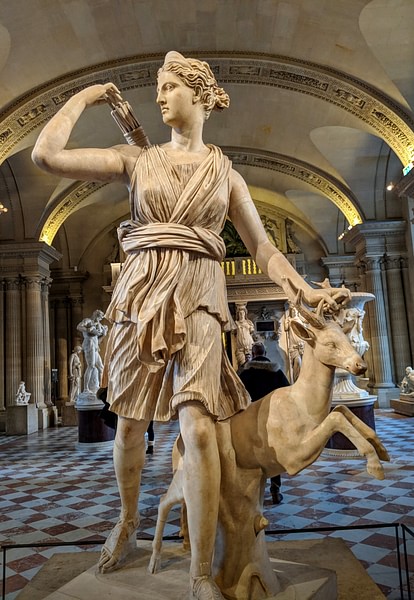The Greek pantheon is filled to the brim with stories of interactions between the gods and goddesses, and their many stories with the world of man. However, one of the most exciting parts of Greek mythology is the fact that it’s pretty different when compared to many other types of pantheons out there.
Whereas many depictions of gods and goddesses from other civilizations are in a much more positive and divine light, Greek mythology is all about drama and tragedy. The gods and goddesses of the Greeks are about as human as the rest of us, which opens the door for all kinds of creative writing. In fact, if there were such a thing as gods and goddesses that made mankind in their image, perhaps the Greek pantheon would be closest to reality.
Zeus (Roman Name: Jupiter)

As the ruler of Mount Olympus, Zeus is considered the god of gods, and most stories concerning the Greek pantheon have something to do with the god of the sky and thunder. Naturally, Zeus’ temper affected the weather, and he had a habit of tossing thunderbolts about whenever he was unhappy.
There are so many stories surrounding Zeus that it would probably fill up a library. Unfortunately, many of those stories don’t exactly show Zeus in a very positive light. In most cases, he’s the most human of the gods and goddesses, especially when it comes to the subject of lust. His symbols include the thunderbolt and oak.
Hera (Roman Name: Juno)

If Zeus embodied the most human qualities, good and bad, Hera was the product of the god of thunder’s behavior. Hera is the Greek goddess of marriage, which is something she holds very sacred. Such is the reason why she’s often depicted as angry and vengeful, as Zeus had a habit of taking whoever he wanted. Naturally, this made Hera angry, resulting in all sorts of problems for the mortals involved in Zeus’ escapades.
In the twelve labors of Heracles, Hera made the demigod’s life as miserable as she possibly could, as Heracles was the son of Zeus, but didn’t belong to her. The Greeks were very careful not to be the subject of Hera’s wrath, as she could bring about many calamities if angered. Her temper rivaled that of Zeus, but she could also be benevolent to those who found her favor.
Hades (Roman Name: Pluto)

While Hades is known as the king of the dead and the god of the underworld — contrary to popular belief, he doesn’t have a fiery temper or an ulterior motive to be the king of the gods. Hades watches over the underworld, and is considered to be a fair god. There’s another area lower than the underworld known as Tartarus, which became synonymous with Hades and lost its distinctness as time went on.
Despite being fair, Hades is also depicted as being stern, generally having no pity or discrimination. In many ways, he’s similar to death itself in that respect. The idea of Hades is to be unknowable, as no one really knows death until it happens — and the dead cannot tell tales. There’s plenty of mystery surrounding Hades, making him one of the most popular gods in the Greek pantheon. He’s also the brother of Zeus, the king of Olympus.
Poseidon (Roman Name: Neptune)

In most types of mythology throughout ancient civilizations, the gods or goddesses of the sea are always depicted as powerful and worthy of respect. Their tempers can cause earthquakes and tidal waves, but they’re also capable of benevolence through calm waters. Poseidon, the brother of Zeus and Hades, fits that description perfectly.
Poseidon is the god of the sea, and is said to reside in a breathtaking (literally) palace at the bottom of the sea. Interestingly enough, his primary symbol is the horse and the trident, with the former not typically being a symbol of sea gods. Poseidon features prominently in the stories of ancient Greece, particularly in the siege of Troy due to the grudge he bore against King Laomedon of Troy.
Apollo

While the Greek pantheon is known for their very human gods and goddesses that were just as capable of wrath as they were of miracles, not everyone had a reputation for a fiery temper. For example, Apollo is known for being the god of music and healing and was the patron god of the oracle of Delphi. His symbols include the crow, the dolphin, and the laurel tree.
Apollo was known to be a skilled hunter, and he often hunted with a silver bow. He’s the twin of Artemis, and he’s known for being the god of prophecy and oracles as much as song and poetry. Apollo was almost always depicted as being a handsome, beardless youth with long hair. It was said that the reason Achilles lost his life in Troy was because he defiled the temple of Apollo when they first set foot in the beaches of Troy.
Aphrodite

The ancient Greeks were known for their passionate storytelling, and you can’t have passion without love. In the Greek pantheon, Aphrodite was said to predate even Zeus and the other gods of Olympus, as she rose from the sea — a creation of Cronus, who was the father of Zeus. Aphrodite is known as the goddess of love, lust, and love-making.
Aphrodite also possesses a magic girdle that made anyone who saw her fall in love with the goddess. She had a habit of making the other gods and goddesses fall in love with mortals, though Zeus had a bit of revenge by making her fall in love with a mortal herself. Aphrodite is known for being vain when it comes to anything regarding her physical appearance, which is apt for a goddess of love and lust. Naturally, all of her stories concern her physical appearance or the various forms of love.
Artemis (Roman Name: Diana)

Artemis is undoubtedly one of the most popular of the Greek gods and goddesses due to what she represents. Not only is she considered a goddess of peace — keeping a close watch on those going through childbirth — but she’s also the goddess of the hunt. It was said that as soon as Artemis was born, she helped her mother for nine days through labor to give birth to her twin, Apollo.
When the giant Tityus attempted to rape the mother of the godly twins, Artemis and Apollo showered the giant with arrow after arrow, killing him on the spot. Zeus punished the giant with eternal torment, despite the giant being his own son. One interesting motif concerns the wrath of Artemis, which can be seen as nature’s unforgiving, wild side. That said, many ancient Greek portrayals had a tendency to avoid showcasing Artemis’ more wrathful side.
Athena (Roman Name: Minerva)

The ancient Greeks held Athena in very high regard, as she was known as a goddess of peace and war. Even Zeus, king of the gods, looked to Athena as his favorite child. In many ways, Athena was a favorite of the ancient Greeks, as showcased by the most well-known city of the Greek world, Athens.
Athena’s story spans through many different tales, where she helps heroes across the age. She’s not only known as the goddess of wisdom, but she’s also considered a goddess of arts, crafts, and war. She was known as the inventor of the chariot, and the designer of the very first ship — at least within the mythology.
Athena has also experienced a resurgence in popularity due to her appearance in various movies and games over the years. It seems like to this day, she still enjoys the same popularity she did back then.
Ares (Roman Name: Mars)

If Athena was the favored child of Zeus and Hera, Ares was the exact opposite. Ares is known as the god of war, but he’s depicted as being both cruel and a coward. That said, he is still the god of war, and so he’s exceptionally skilled in the art of war-making. He often butted heads with Athena, though in many stories he would receive the short end of the stick.
Those who received Ares’ favor would be protected in times of war, though the same can be said by those who had Athena’s favor. The siblings are constantly at odds, though based on the stories it’s evident that Ares is often portrayed as the villain and the aggressor. Ares also sees a more prominent role in modern pop culture. The symbols of Ares are the dog and the vulture.